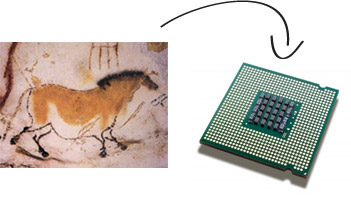Specializations

Art in culture. This specialization aims to link the humanities with the arts. The courses offered – taught by leading theoreticians and practitioners of liberal arts – show how literature, poetry, painting, music, theater and dance are created, and what function they have had in European culture from the earliest times to the present day. They also discuss the origins and development of the notion of arts in light of different humanist theories. The aim is to understand the meaning of human artistic activity and the importance of reflecting on art and literature. Graduates of this specialization not only gain in-depth knowledge on the arts and the humanities but are able to conduct activity on the borderline of both these areas in practice. They also become active co-originators of cultural activity.
Ideological and material aspects of social life. This specialization is based on a collaboration between the Faculty of “Artes Liberales” and several other units at the University of Warsaw, including the Faculty of Philosophy and Sociology and the Faculty of Law as well as external organizations. Every year their staff teach Collegium classes related to research on social issues. The courses present the most important sociological theories together with the achievements of other social sciences: history, cultural anthropology, political science and psychology. Graduates of this specialization gain in-depth knowledge on the social sciences, and skills needed for practical activity in the public sphere.
Christianity in culture. This specialization aims to show the cultural influence of Christianity. The courses study the presence of Western Christianity (Roman Catholicism and different Protestant denominations) as well as Eastern Christianity (the Orthodox faith and Greek Catholicism) in different societies and in different periods. Students study how theological concepts function and link them to issues such as religion and violence, ecumenism, and Christianity’s dialog with other religions. Graduates of this specialization gain in-depth knowledge on the historical development of Christianity and know how to use it in analyses of problems of the contemporary world.
Biological and cultural diversity. This specialization aims to provide and develop interdisciplinary knowledge on the border between the humanities, social and natural sciences, and art. It enables students to understand the complex and multidimensional relations between humans and nature. Students learn how to take the results of research in the natural sciences into account and use them creatively in the humanities and social sciences. The courses discuss issues of biological diversity at many levels of organization of the animate world (from genes to landscapes and biomes), cultural diversity, animal studies and ecology. The specialization is intended for students interested in relationships between humans and nature in a cognitive, practical and ethical context.
Between East and West – the history of culture and thought. This is a new specialization of artes liberales second-cycle studies. It will be launched in the 2017/18 academic year as part of a programme run jointly with the University of Cologne and the Higher School of Economics in Moscow. It offers the option of obtaining a double degree: from the University of Warsaw and one of the partner universities. It is intended for students with good Russian or German language skills looking for a course enabling them to launch a research career in an international community. Students spend at least one semester at the partner university, where they choose a second supervisor of their master’s thesis. The aim of this specialization is to show the best academic traditions from the history of cultural and intellectual contacts between East and West as well as to develop skills needed for creative reflection on those traditions. Students receive individual specialist and research supervision from a tutor and the support of international teachers involved in the programme.


